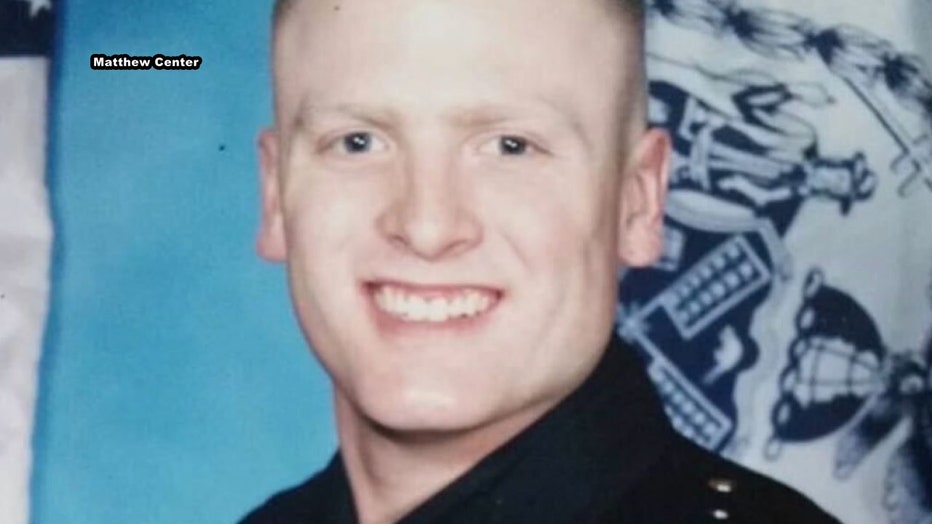'Every day there was a funeral': NYPD officer, a rookie during 9/11 attacks, recalls day that changed his life

Retired NYPD officer remembers 9/11
For Matt Center, the heroic actions from first responders and kindness from complete strangers are what he'll always remember. He was still a rookie when 9/11 happened with just two years on the job as a New York police officer. He was in Brooklyn when he watched the second plane hit the South Tower.
TAMPA, Fla. - Retired New York City police officer Matthew Center was a rookie cop — just two years into his job — when September 11th happened and his life as he knew it would never be the same.
"The way I feel every year never changes," said Center, who was 24 at the time. "I'm kind of in a fog all day. You know? I can't describe it any other way. The day is just a cloud."
It was primary day in New York City, the morning of September 11, 2001, and Center was assigned to work the polls in Brooklyn when an elderly woman approached him with a radio and told him something had hit the World Trade Center. He raced to the roof of the building and watched as the smoke billowed. It was there at 9:03 a.m. when he witnessed the second plane hit the South Tower.
"I could see it going across the sky. It looked like a bird, but then all of a sudden you couldn't see it. And then the explosion. And I just thought, you know, what's going on?" Center said.

Matthew Center when he was an NYPD officer
He said the next 24 hours and the days that followed were a blur of raw emotion. He said he still struggles to put it into words.
"It was just absolutely heartbreaking. There were so many civilian causalities," Center said. "It was almost like every day there was a funeral."
He spent the next four months at Ground Zero working non-stop. He didn't see a day off until January.
According to the World Trade Center Health Program, about 74% of first responders have been diagnosed with at least one physical or mental health condition including 20% with cancer. He and his partner – who worked side-by-side for months – is one of them and is in remission.
"It's just it's stressful. When I see so many people that I know get sick and some that have died, you know, you kind of look in the mirror and say, ‘Why them and not me? And when is my time? When is this going to happen to me?’ And that's just that's a daily, daily battle," Center said.
He doesn't view this as a historical event, but as an ongoing attack. To this day, people are still being diagnosed with cancer developed at Ground Zero and still dying. It's why he says it's so important to him to make sure first responders and anyone who developed cancer at Ground Zero get the healthcare they need.

